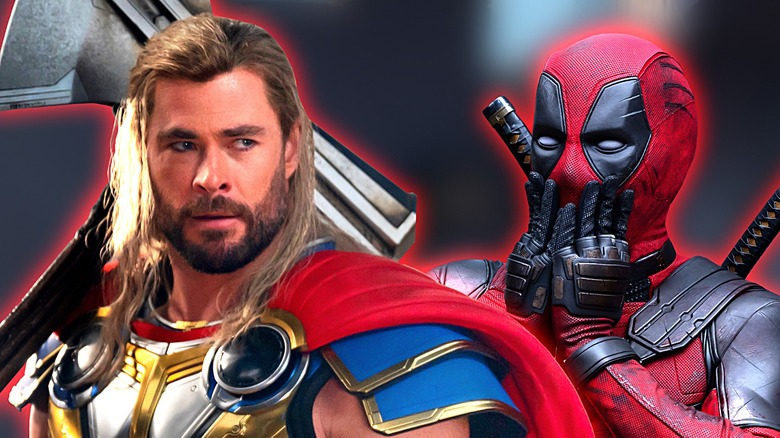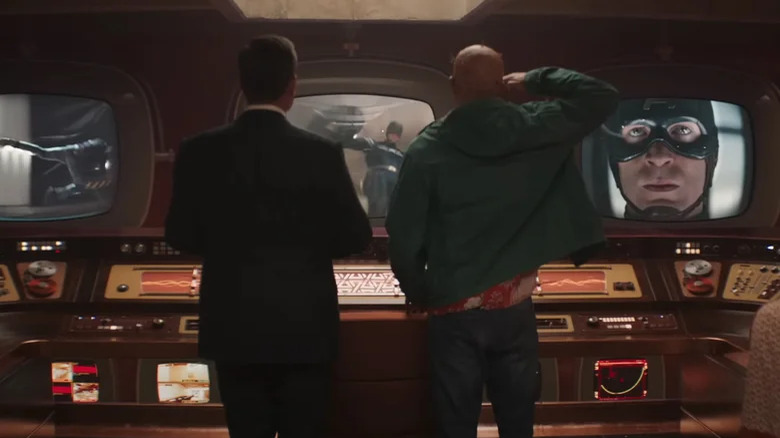Here's Why Deadpool & Wolverine Included That Scene Of Deadpool And Thor's Possible Future
When it was announced that "Deadpool 3" would be released as part of the Marvel Cinematic Universe following Disney's purchase of Fox's movie and TV assets, speculation began on how exactly Ryan Reynolds' Deadpool would fit into the franchise and whether the film could reconcile the R-rated violence, humor, and meta commentary of the first two "Deadpool" movies with the Marvel Studios formula. What we got in "Deadpool & Wolverine," however, was something different altogether. Other than the inclusion of the Time Variance Authority and the multiverse, as well as a mostly forgotten character from "Loki," the film is largely removed from the current phase of the MCU.
Instead, "Deadpool & Wolverine" is much more interested in being a goodbye letter to the 20th Century Fox era of Marvel movies. But not just "Blade," "X-Men," and the other highs that paved the way to the current superhero dominance of pop culture, but also misfires like "Elektra," "Fantastic Four," and the various massive flops that we got in the 2000s as studios struggled with the idea of what made a superhero movie. In a breath of fresh air for the MCU, "Deadpool & Wolverine" is not really about teasing what will happen next in the franchise, except maybe for one little gag — Deadpool dying in Thor's arms.
On the most recent episode of the Happy Sad Confused podcast, director Shawn Levy talks about the scene, explaining that it wasn't meant to be paid off in the movie. "Literally it was like, 'Hey, wouldn't that be weird if we saw that? And who knows what it means, maybe that's a problem for [Kevin] Feige to solve later,'" Levy explained.
What if Deadpool appears in Secret Wars?
"But it did become this runner, because Ryan talks a lot and very much thinks a lot about the fact that Deadpool's a fan," Levy continued. "Deadpool's always been a fan of these heroes, and this kind of obsession with this snippet where he sees himself being cradled so gently in Thor's hulking arms, we found it very amusing to play with."
What is interesting is that, when talking to Collider, Reynolds had a very different response. "I'll just say that it's something that we are going to account for ... at some point," he explained, adding, "That's about all I can really say right now, but we will account for it."
This is intriguing because the MCU has, of course, conditioned the audience to think even the silliest gag is actually a hint of movies to come. It makes sense, since this is the franchise that came to dominate the box office in no small part thanks to its promise that everything was connected and every setup had a payoff. Of course, that is no longer true, necessarily, but the principle remains. If Deadpool is seen dying in Thors' arms in some alternate timeline, we're going to see the context down the line.
Sure, it could be wishful thinking on behalf of Reynolds and Levy for Kevin Feige to carry this scene over into another MCU project, or perhaps it's a scene originating from Feige himself as a tease for "Avengers: Secret Wars." What better way to set up the stakes and the multiversal element of "Secret Wars" than showing Deadpool dying in Thor's arms during his very first outing in the MCU?
"Deadpool & Wolverine" is currently playing in theaters.

